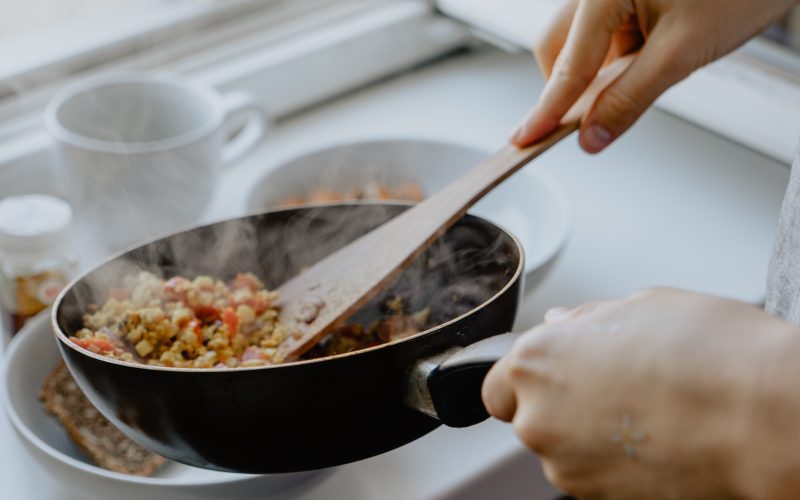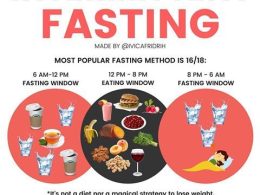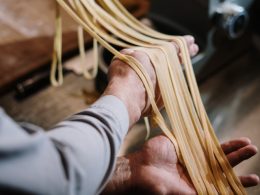Are cookbooks cramping your culinary style? Do you find yourself constantly tied to a recipe, unable to make even the tiniest alteration without feeling like you’re breaking some kind of rule? It’s time to ditch the cookbook and start trusting your taste buds. Cooking without a recipe may seem daunting at first, but with a little practice and experimentation, you’ll discover a whole new world of flavors and techniques. In this blog post, we’ll explore why relying too heavily on cookbooks can actually hinder your cooking skills, how to tune in to your senses when cooking, and the benefits of going rogue in the kitchen. Get ready for an exciting journey into uncharted culinary territory!
The Case Against Cookbooks
Cookbooks have long been a staple in the kitchens of home cooks and professional chefs alike. They provide a sense of structure, guidance, and consistency that can be comforting to those who are less confident in their cooking abilities. However, there is also a case to be made against cookbooks.
Firstly, many cookbooks rely on hard-to-find or expensive ingredients that may not be practical for everyday use. This can lead to frustration and disappointment when attempting to recreate recipes at home.
Secondly, following recipes too closely can stifle creativity and experimentation in the kitchen. Cooking should be an enjoyable process that allows you to express yourself through food – not just blindly follow instructions.
Cookbooks often fail to take into account individual tastes and preferences. Just because a recipe calls for a certain amount of salt or spice doesn’t mean it will necessarily taste good to you.
By ditching the cookbook and trusting your own instincts and taste buds instead, you’ll open up a world of possibilities in the kitchen.
How to Listen to Your Taste Buds
When it comes to cooking, many people rely on cookbooks and recipes to guide them in the kitchen. However, this can often lead to a lack of creativity and individuality in your dishes. The solution? Trust your taste buds.
Firstly, start by tasting as you go along. Take a small sample of the dish at each stage and assess its flavours – do they need more salt or pepper? Would some herbs or spices enhance the taste?
Secondly, don’t be afraid to experiment with different ingredients. If you’re missing an ingredient from a recipe, try substituting it with something else that complements the other components of your dish.
Thirdly, learn to trust yourself when it comes to flavour combinations – if something sounds like it would work well together in your mind, give it a try!
Remember that cooking is all about trial and error. Not every meal will turn out perfect but don’t let this discourage you from trying new things and discovering what works for you.
By listening to your taste buds and honing in on what flavours work well together for YOU personally, you’ll be able to create unique dishes that are personalized just for you!
Recipes as guidelines, not gospel
When it comes to cooking, following a recipe to the letter can feel like the only way to ensure success. However, as you become more comfortable in the kitchen and gain confidence in your abilities, it’s important to remember that recipes are merely guidelines.
Recipes should be viewed as suggestions rather than strict rules that must be followed without deviation. Cooking is an art form and every artist brings their own unique perspective and techniques to their craft. The same applies when you’re using a recipe – trust your instincts and adjust things according to your tastes.
If you find yourself with an ingredient missing or substituted for something else, don’t panic! Instead of abandoning the dish altogether or running back out to the store, try improvising with what you have on hand. This may lead to new flavor combinations that end up being even better than the original recipe.
Remember that cooking is all about experimentation and finding what works best for you. Whether it’s adjusting measurements or adding unexpected ingredients, there’s no harm in deviating from a recipe if it means creating a delicious meal that satisfies your taste buds.
The benefits of cooking without a recipe
Cooking without a recipe may sound daunting, but it comes with a range of benefits. One of the main advantages is that you can be more creative and spontaneous in the kitchen. Rather than following strict instructions, you have the freedom to experiment with different ingredients and flavors.
Cooking without a recipe also encourages you to trust your instincts and taste buds. You’ll learn how to adjust seasonings or cooking times based on what feels right rather than relying on set measurements.
Moreover, cooking without a recipe can save time and money. Instead of spending hours searching for the perfect recipe online or at home, you can use what’s already in your pantry and fridge.
Additionally, cooking without a recipe teaches valuable skills such as improvisation, problem-solving, and resourcefulness. It helps build confidence in the kitchen through trial-and-error experiences.
Cooking without a recipe fosters an appreciation for food by allowing us to fully immerse ourselves in the process. It allows us to enjoy every step from selecting fresh ingredients to savoring our final creation at dinner-time
Conclusion
Cooking without a cookbook can be intimidating at first, but it is an excellent way to hone your skills and creativity in the kitchen. Trusting your taste buds allows you to experiment with flavors and textures that cater specifically to your preferences.
Cookbooks are undoubtedly useful when trying out new recipes or learning essential techniques. However, it’s crucial not to let them restrict our culinary journey. Instead, we should use them as guidelines and trust our intuition in the kitchen.
So why not ditch the cookbook for a day? You never know what delicious creations you might come up with. And who knows – you might even discover a newfound love for cooking!












